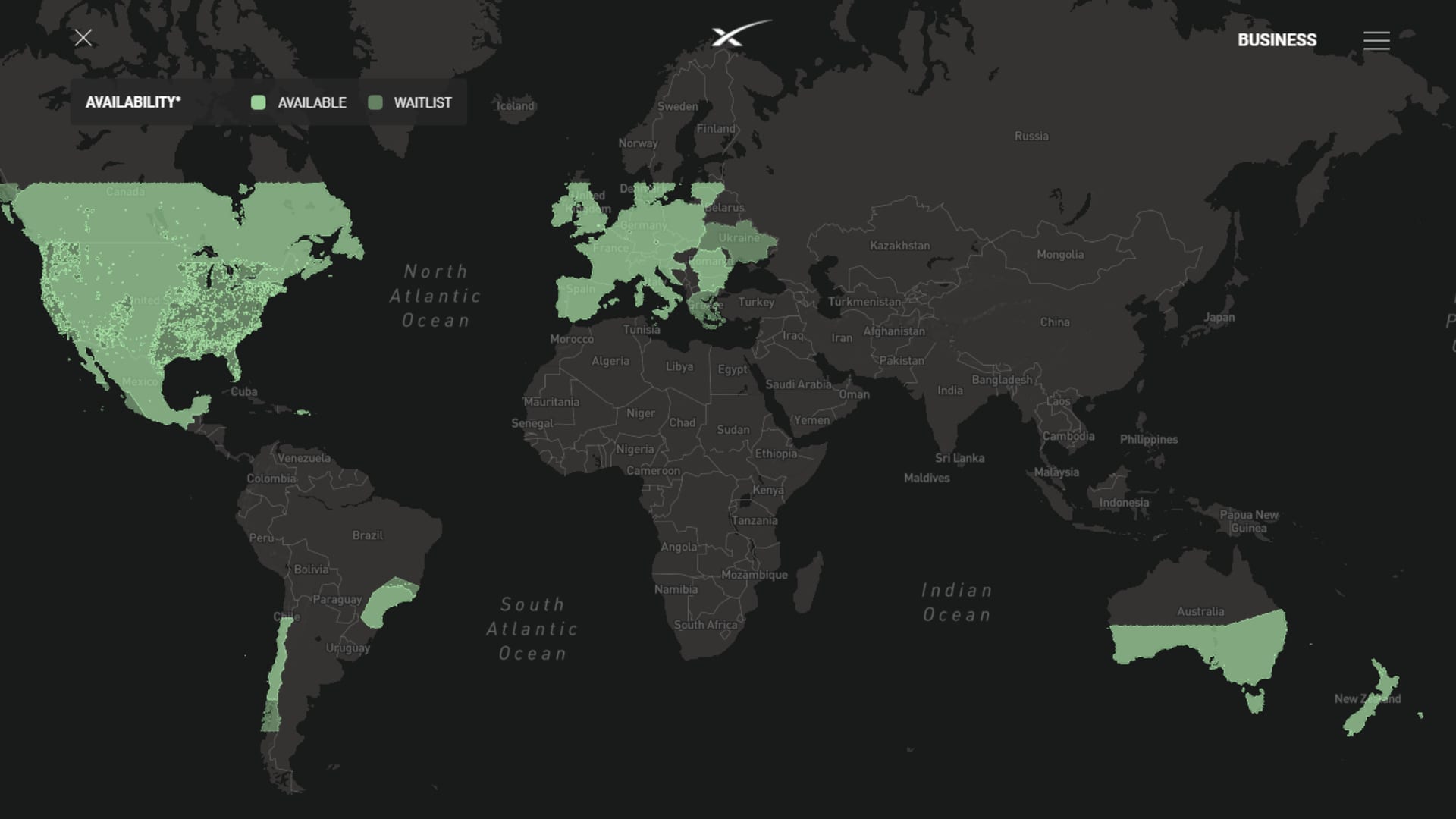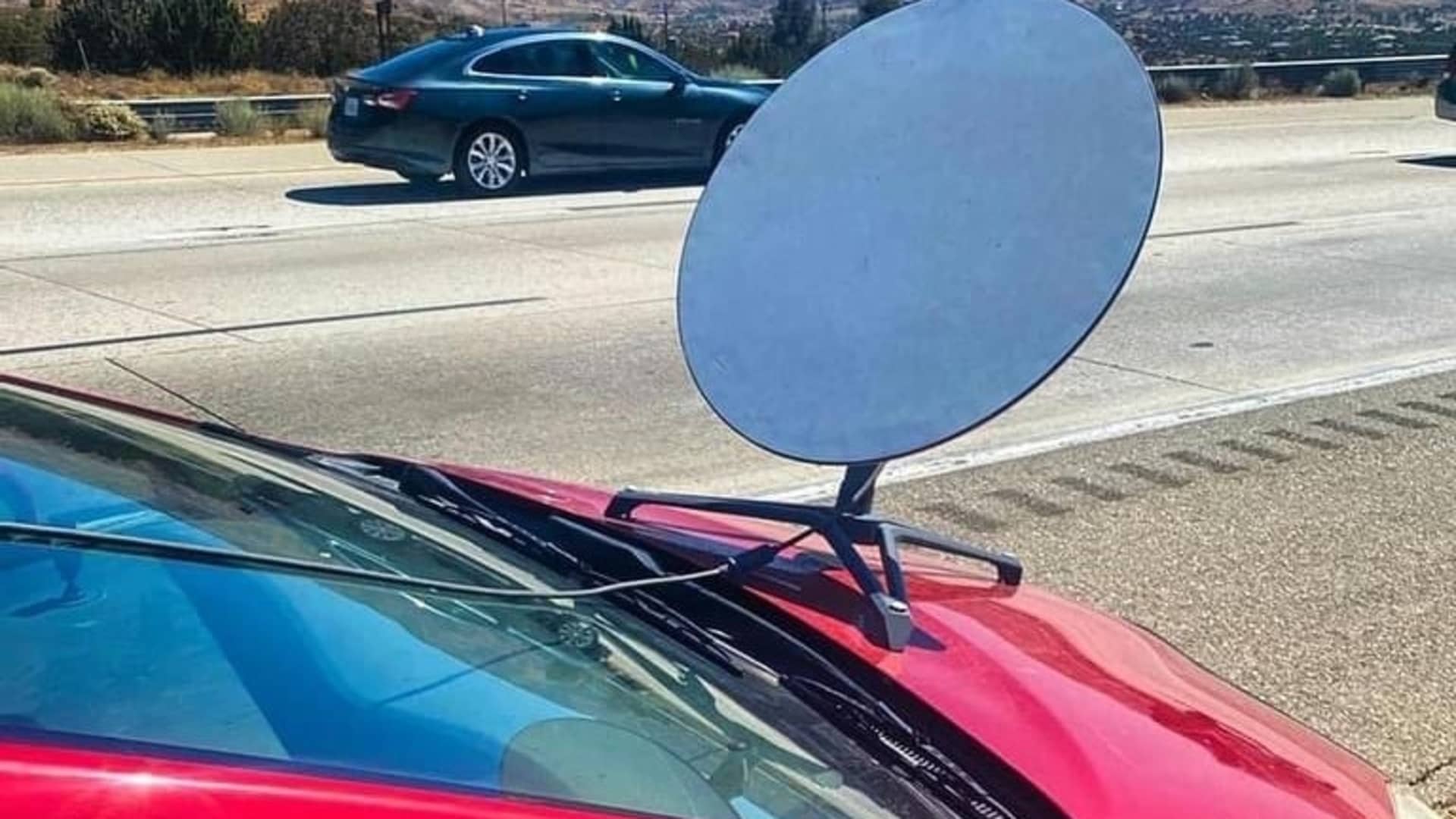
- Elon Musk's SpaceX rolled out a $25 monthly fee this week for customers who seek to relocate their Starlink internet service satellite dishes.
- Users who activate the feature will see the base price for Starlink service increase to $135 a month, from $110 a month.
- Portability does not mean mobility, however, as SpaceX does not authorize customers to use the service on a moving vehicle.
Elon Musk's SpaceX rolled out a $25 monthly fee this week for customers who seek to relocate their Starlink internet service satellite dishes.
"Portability enables customers to temporarily move their Starlink to new locations and receive high-speed internet anywhere Starlink provides active coverage within the same continent," SpaceX wrote in an email to customers on Wednesday, copies of which were seen by CNBC.
Users who activate the feature will see the base price for Starlink service increase to $135 a month, from $110 a month.
Get top local stories in Southern California delivered to you every morning. >Sign up for NBC LA's News Headlines newsletter.
Notably, many users in the past year self-reported on social media that they were able to move Starlink dishes outside of the address that they had registered for service, without seeing significant disruptions to service. Starlink has been increasingly embraced by the nomadic, "vanlife" community due to its relativity high speeds – but SpaceX is now charging a price for that flexibility.
Starlink dishes weigh about 10 to 15 pounds, and the kit included with the antenna includes a WiFi router and a base to stand it upright.
The Starlink network of about 2,000 satellites in low Earth orbit is designed to deliver high-speed internet anywhere. SpaceX said in March that there are about 250,000 total Starlink subscribers, which includes both consumers and enterprise customers.
Money Report
SpaceX's new portability option comes with several notable caveats to users, according to the Starlink support website. Users who activate the feature will get service "on a best effort basis," with the company's advertised speeds of 100 Mbps to 200 Mbps "not guaranteed."
"Starlink prioritizes network resources for users at their registered service address. When you bring your Starlink to a new location, this prioritization may result in degraded service, particularly at times of peak usage or network congestion," SpaceX says.
For users with multiple Starlink antennas, portability "must be selected and purchased for each location" – meaning it's a $25 fee per dish. While the service can be activated instantaneously, SpaceX will invoice customers on a full-month basis.
"For example, if you enable Portability on March 12th and your next billing date is on April 1st, you will be charged $25 on April 1st for the full previous month," the company said.

International travelers are also restricted to using Starlink dishes "within the same continent as the registered service address."
"If you use Starlink in a foreign country for more than two months, you will be required to move your registered service address to your new location or purchase an additional Starlink to maintain service," SpaceX said.
SpaceX's descriptions of portability also don't specify whether the feature is only activated by the users, or if the company can start charging the fee if it detects a customer has moved their dish beyond their registered address.
Additionally, portability does not mean mobility.
While SpaceX emphasizes that its Starlink "teams are actively working to make it possible to use Starlink on moving vehicles" such as automobiles, boats and recreational vehicles, customers need to be in a fixed location to use the service.
"Using the Starlink Kit in motion will void the limited warranty of your Kit," SpaceX says.
A driver in California last year was fined by law enforcement for bolting a Starlink antenna to the hood of their vehicle, which was in place while they were driving.







